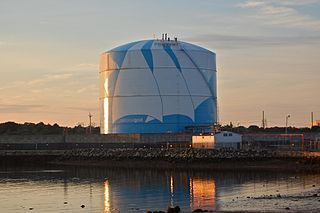From Guest Blogger Tiffany Matthews: The Gradual Rise of Natural Gas
The pressure is on for better strategies to combat climate change. President Obama’s second term is decidedly greener than the first, and it reflects in the people he chose to focus on the energy and environmental policy. Ernest Moniz, a scientist at the Massachusetts Institute of technology and Gina McCarthy, a staunch environmentalist, have been selected as U.S. Energy Secretary and Head of the Environmental Protection Agency respectively.
On March 4, 2013, at a White House ceremony, Obama said,
They’re going to be making sure that we’re investing in American energy, that we’re doing everything that we can to combat the threat of climate change.
The emphasis on preserving the environment could turn the spotlight on natural gas, which is just one of the options that people have when it comes to dealing with climate change. Natural gas is less expensive and a cleaner alternative than gasoline. It has helped America become less reliant on power plants fired by coal, thereby reducing emissions that contribute to global warming. It is expected that once McCarthy takes the helm, new rules will be implemented that will further put the pressure on coal-powered plants. Stricter Clean Air Act rules are sure to follow.
One of the problems that natural gas is facing is that there is low demand for it. The recent cold weather and cheap energy rates in New York, however, has helped boost the demand for natural gas, as people burned gas to chase the chills away. In fact, foxbusiness.com has reported that the future of natural gas is set high, saying,
The chilly conditions have pushed natural-gas futures up 7% since the start of the year. Natural-gas demand has also been climbing from other sources, such as power generation.
Natural gas has also been hitting other headlines with New York Times recently publishing an article on natural gas, which quotes,
“Natural gas is primarily a source for electrical generation that has become increasingly popular because it burns cleaner than oil and coal and produces less greenhouse gases. Many environmentalists and energy analysts view natural gas as a natural bridge fuel between the dominant fossil fuels of today and the renewable fuels of tomorrow.”
If you take a look around the world, natural gas is gaining recognition around the world. During Spain’s recent droughts, it turned to natural gas as backup for the people’s source of electricity. Do you remember the killer earthquake that hit Japan in March of 2011? The Asian nation suffered a nuclear crisis when the quake triggered a tsunami that hit Fukushima Daiichi Nuclear Plant hard. The damages it sustained caused its nuclear reactors to shut down and initiate a melt down. Since the plant generated electricity for Tokyo, but was unable to operate, Japan had to turn to other sources–natural gas.
Although cars that run on natural gas have yet to become a trend, expect its popularity to rise as demand for natural gas also rises. And at the rate it is rising, this international commodity could very well usher in a new era of natural gas.
About the Author
Based in San Diego California, Tiffany Matthews is a professional writer who supports green strategies that help preserve the environment. She also blogs about travel, fashion, and anything under the sun at wordbaristas.com. In her free time, she likes to travel and watch movies with friends. You can find her on Twitter as @TiffyCat87.


Natural gas also lends itself to cost effective combined heat and power at relatively modest scales in many markets – with shopping centres and the like having the opportunity to generate much of their own power whilst using the exhaust heat for hot water, space heating, and where required, for absorption cooling to cool the buildings in the summer time. Using such systems can result in substantially less emissions per kWh of useful energy than where only the electricity is used, and the residual heat is dumped as happens in traditional power stations.
Natural gas is clean burning – so ideal for use in or near to urban centres where coal use is unwelcome or illegal.